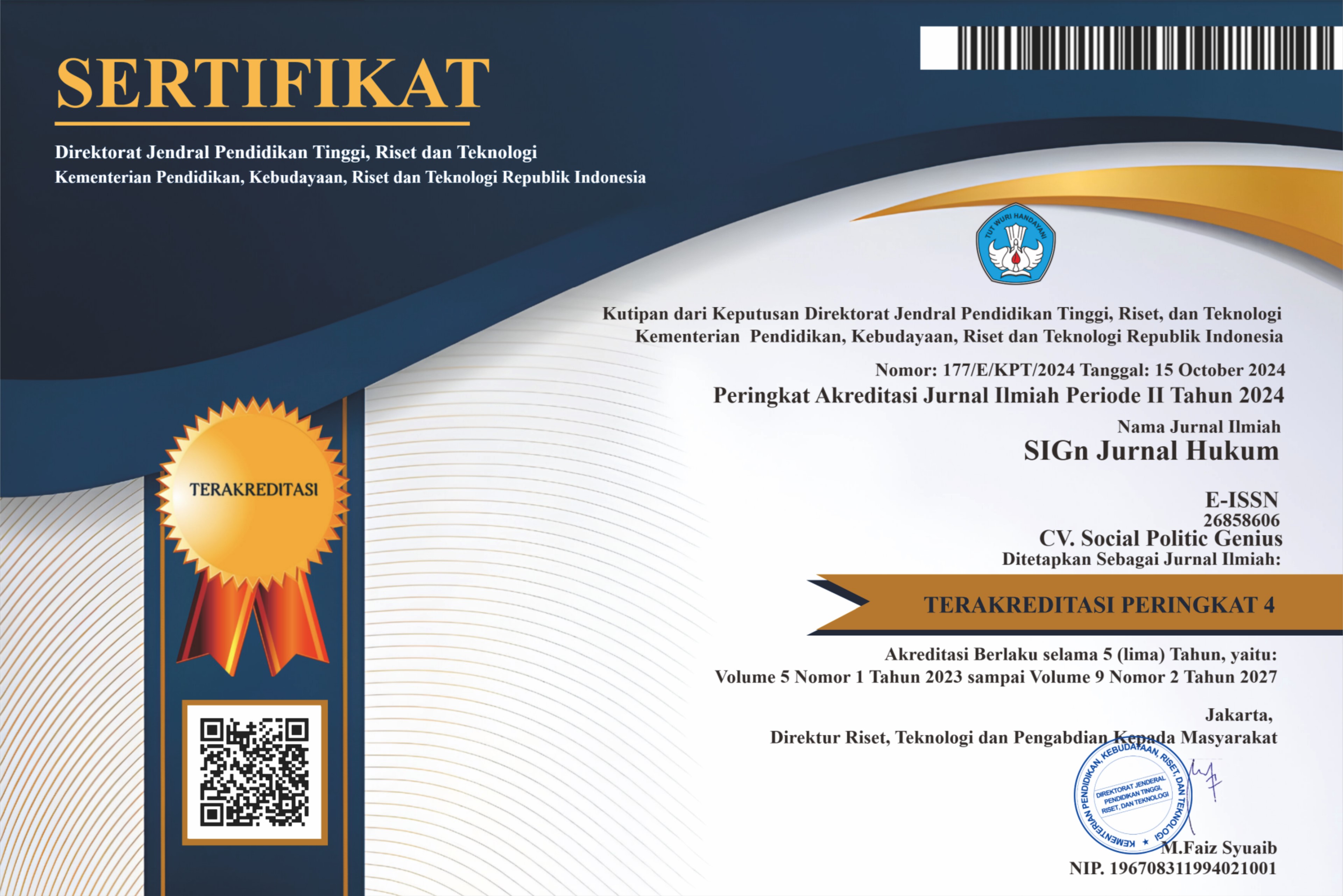The Effect of the Halal Certification Label on the Activities of Culinary Business Actors and Non-Muslim Tourists in Palembang
Abstract
This study aims to determine the effect of halal certification labels on the sale of culinary products in Palembang. Furthermore, this study also wants to know the competitiveness of business actors who have halal certification in Palembang. In addition, to determine the perception of non-Muslim tourists on halal product certification in Palembang. This type of study is empirical research. The questionnaire method was used to obtain research data. The data obtained in this study refer to the problem hypothesis testing. Bivariate linear regression was used as a test tool on the halal label variable to predict an increase in sales and competitiveness and was calculated by SPSS 22. At the same time, explanatory sequential design as a qualitative analysis method is obtained from the description of the questionnaire data. It is used to explain non-Muslim perceptions of halal products. The results of this study indicate several conclusions. First, the sale of culinary products has increased positively with the existence of halal certification labels. In this case, halal certification labels affect the sale of culinary products in Palembang is 19.1%. Second, the competitiveness of business actors has increased positively with halal certification labels. In this case, halal certification labels affect the competitiveness of business actors in Palembang is 8.2%. Third, most non-Muslim tourists have a good perception of the halalness of culinary products in Palembang. In this case, 94.31% of respondents have a good perception of the halalness of a culinary product. Meanwhile, 5.69% of respondents have a bad perception. Therefore, it is recommended for socialization related to the role of halal certificate labels to the general public and culinary business actors in Palembang. In addition, a collaboration between the Association, Community, Government, and Media is needed to encourage culinary business actors in Palembang to play an active role in having a halal certificate label. Next, invite BPJPH to provide information about the steps for registering a halal certificate label.
Downloads
References
Agus, P. A. (2017). Kedudukan Sertifikasi Halal dalam Sistem Hukum Nasional sebagai Upaya Perlindungan Konsumen dalam Hukum Islam. Amwaluna: Jurnal Ekonomi dan Keuangan Syariah, 1(1), 149-165. doi: https://doi.org/10.29313/amwaluna.v1i1.2172
Andriyani, A. (2019). Kajian Literatur pada Makanan dalam Perspektif Islam dan Kesehatan. Jurnal Kedokteran dan Kesehatan, 15(2), 178-198. doi: https://doi.org/10.24853/jkk.15.2.178-198
Bulan, T. P. L. (2016). Pengaruh Labelisasi Halal terhadap Keputusan Pembelian Sosis di Kuala Simpang Kabupaten Aceh Tamiang. Jurnal Manajemen dan Keuangan, 5(1), 430-439.
Chairunnisyah, S. (2017). Peran Majelis Ulama Indonesia dalam Menerbitkan Sertifikat Halal pada Produk Makanan dan Kosmetik. Edutech: Jurnal Ilmu Pendidikan dan Ilmu Sosial, 3(2), 64-75.
Editorial. (2003). Panduan Sertifikat Halal. Jakarta: Ministry of Religious Affairs of the Republic of Indonesia.
Faridah, H. D. (2019). Halal Certification in Indonesia: History, Development, and Implementation. Journal of Halal Product and Research (JHPR), 2(2), 68-78. doi: https://doi.org/10.20473/jhpr.vol.2-issue.2.68-78
Ghozali, I. (2006). Aplikasi Analisis Multivariate dengan Program SPSS. Semarang: UNDIP Press.
Girindra, A. (2005). Pengukir Sejarah Sertifikasi Halal. Jakarta: LPPOM MUI.
Lada, S., et al. (2009). Predicting Intention to Choose Halal Products using Theory of Reasoned Action. International Journal of Islamic and Middle Eastern Finance and Management, 2(1), 66-76. doi: https://doi.org/10.1108/17538390910946276
Law of the Republic of Indonesia Number 33 of 2014 on Halal Product Assurance (State Gazette of the Republic of Indonesia of 2014 Number 295, Supplement to State Gazette of the Republic of Indonesia Number 5604).
Manaf, S., et al. (2020). Analysis of Development of Culinary Tourism Management Model in Case Study East Luwu District Based on SIG. International Journal of Tourism and Hospitality in Asia Pasific, 3(1), 1-14. doi: https://doi.org/10.32535/ijthap.v3i1.712
Mukhtar, U. (2020, February 26). BPJPH: Baru 1.158 Pelaku Usaha Daftar Sertifikasi Halal. Republika.co.id. Retrieved from https://www.republika.co.id/berita/q69gfj396/bpjph-baru-1158-pelaku-usaha-daftar-sertifikasi-halal, at the date of May 17, 2020.
Panorama, M. (2018). Analisis Potensi Wisata Religi Ki Merogan Palembang. I-Economics: A Research Journal on Islamic Economics, 4(1), 18-28. doi: https://doi.org/10.19109/ieconomics.v4i1.1924
Porter, M. E. (2011). The Competitive Advantage of Nations: Creating and Sustaining Superior Performance. New York: The Free Press.
Putri, E. A. (2021). Kewenangan MUI Pasca Terbitnya PP No. 31 Tahun 2019 tentang Peraturan Pelaksanaan UU No. 33 Tahun 2014 tentang Jaminan Produk Halal. Krtha Bhayangkara, 15(2), 333-350. doi: https://doi.org/10.31599/krtha.v15i2.792
Rozalena, A. (2017). Makna Simbolik Komunikasi Merek Kuliner Khas Palembang di Bandung. Mediator: Jurnal Komunikasi, 10(2), 257-267. doi: https://doi.org/10.29313/mediator.v10i2.3197
Salehudin, I. & Luthfi, B. A. (2011). Marketing Impact of Halal Labeling toward Indonesian Muslim Consumer’s Behavioral Intention Based on Ajzen’s Planned Behavior Theory: Policy Capturing Studies on Five Different Product Categories. ASEAN Marketing Journal, 3(1), 35-44. doi: https://doi.org/10.21002/amj.v3i1.2013
Sari, F. K., et al. (2019). Persepsi, Sikap dan Minat Pariwisata Halal di Daerah Istimewa Yogyakarta. Ihtifaz: Journal of Islamic Economics, Finance, and Banking, 2(2), 137-155. doi: https://doi.org/10.12928/ijiefb.v2i2.857
Sugiyono. (2012). Metode Penelitian Kuantitatif, Kualitatif, dan R&D. Bandung: Alfabeta.
Sujana, S. & Agustian, E. (2013). Pengaruh Labelisasi Halal terhadap Keputusan Pembelian Konsumen Studi Kasus pada Produk Wall’s Conello. Jurnal Ilmiah Manajemen Kesatuan, 1(2), 169-178. doi: https://doi.org/10.37641/jimkes.v1i2.264
Sulaiha, S. (2020, December 3). Sejak Pengolahan Pangan Terapkan Prokes. Virtual Discussion in FGD Catering Aman, Pelanggan Nyaman, organized by the Daily Sumatra Express.
Surwandono, S., et al. (2020). Polemik Kebijakan Wisata Halal di Indonesia serta Tinjauannya dalam Maqashid Syariah. Tsaqafah: Jurnal Imiah ISID Gontor, 16(1), 91-108. doi: http://dx.doi.org/10.21111/tsaqafah.v16i1.3594
Tambunan, T. (2001). Perekonomian Indonesia: Teori dan Temuan Empiris. Jakarta: Ghalia Indonesia.
Warto, W. & Samsuri, S. (2020). Sertifikasi Halal dan Implikasinya bagi Bisnis Produk Halal diIndonesia. Al Maal: Journal of Islamic Economics and Banking, 2(1), 98-112. doi: http://dx.doi.org/10.31000/almaal.v2i1.2803
Copyright (c) 2022 Enos Julvirta, Mustika Permatasari, Umi Dian Adhitya Wulan Ningrum, Raty Rusmiana, Rikki Nelson Lumban Gaol

This work is licensed under a Creative Commons Attribution 4.0 International License.

















